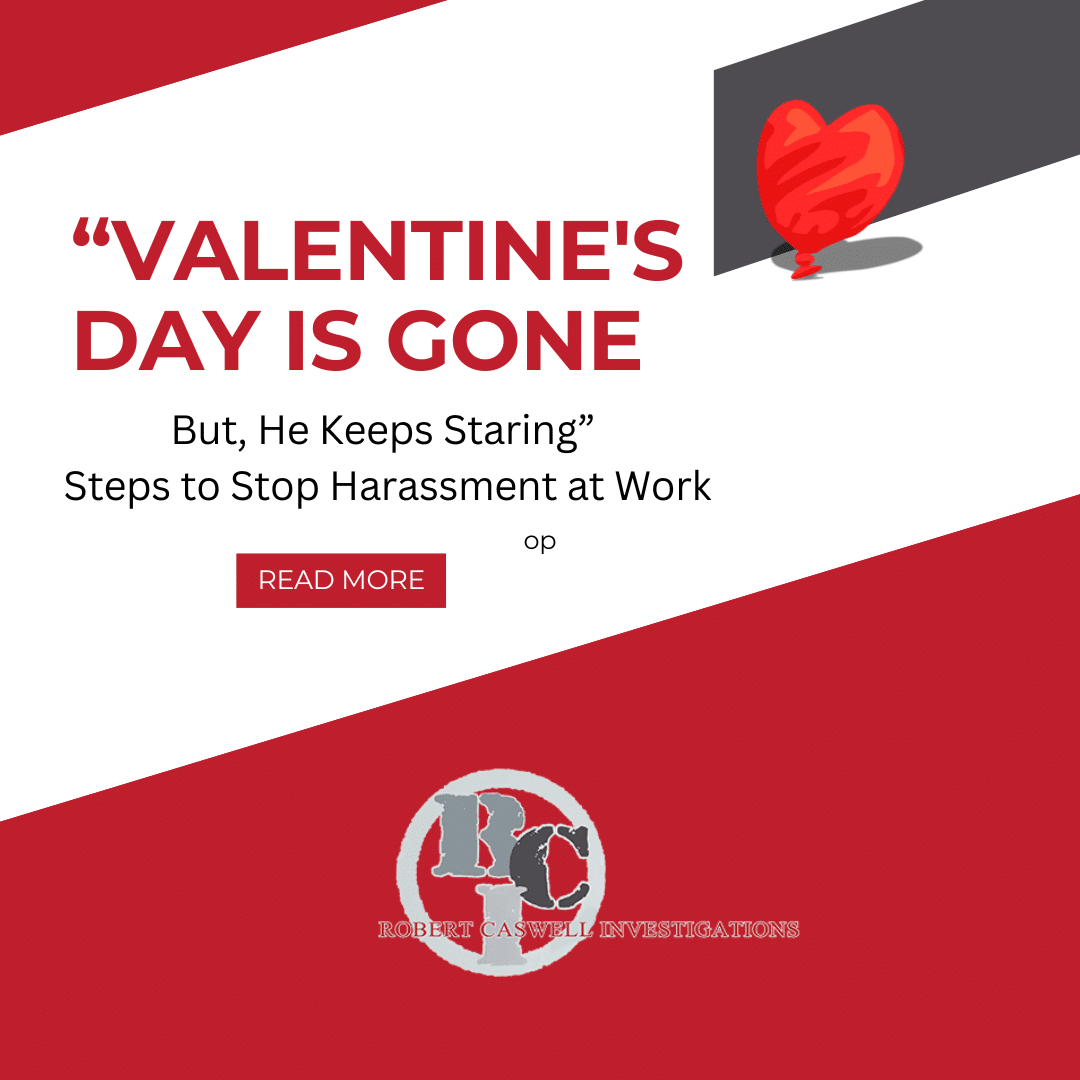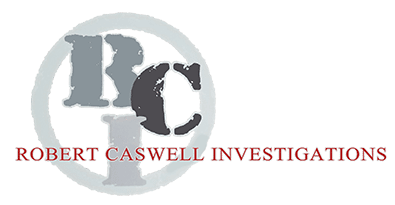
19 Feb Valentine’s Day Is Gone, But He Keeps Staring!
Steps to Stop Harassment at Work
It’s the morning after Valentine’s Day. Heart-shaped balloons have popped, chocolates are on sale, and the office chatter about romantic dinners and surprise gift exchanges begins to fade. But for you, it’s not over. He’s still staring. Whether it’s long, lingering gazes from across the breakroom or “coincidentally” showing up at your workstation more than necessary—it’s making you uncomfortable.
Unfortunately, workplace harassment often takes on subtle, insidious forms, and the days following holidays like Valentine’s Day can exacerbate tensions. Misread signals, misplaced intentions, or heightened emotions can transform an already awkward situation into something more invasive. Here’s what you can do if you’re facing unwanted attention at work, and how professionals like private investigators can help when action is needed.
Why Workplace Harassment Peaks After Valentine’s Day
February is often seen as a time to express affection or admiration. But sometimes, innocent gestures are misinterpreted, and boundaries are crossed. That small card exchange or joke about office crushes might encourage someone to act inappropriately. For some employees, it might also be an emotional period after unsuccessful romantic pursuits or unreciprocated advances, leading them to behave in ways they wouldn’t otherwise.
Understanding these dynamics is key. Everyone has the right to feel safe at work, and this isn’t just about romantic misunderstandings—it’s about respect, professionalism, and the ability to do your job without undue stress.
Steps to Recognize and Address Harassment
If you feel like someone’s behavior in the office has shifted from harmless to harassment, here’s what you can do to address the issue effectively and protect your well-being.
1. Define Exactly What’s Happening
Harassment can be difficult to pinpoint when it feels subtle. Is someone’s behavior making you feel uncomfortable, intimidated, or unsafe? It could be repeated, unwanted stares, overly personal questions, or even suggestive jokes. Recognizing when behavior crosses the line is the first step.
2. Document Everything
Keep a record of any incidents. Write down the date, time, location, and what was said or done. Include any witnesses present. While this may feel tedious, a detailed log is invaluable if you decide to file a formal complaint or seek assistance later.
3. Communicate Boundaries (If Safe to Do So)
Politely but firmly tell the person that their behavior is unwelcome. For example, you might say, “I’d appreciate it if you kept our interactions professional.” If direct confrontation feels unsafe or escalates the situation, skip this step and escalate to the next one.
4. Report the Incident to HR or Leadership
Every company should have policies in place to handle harassment. Approach your HR department or a trusted manager with your documented evidence. Be clear and factual in your description of events. It’s their responsibility to take action, whether through mediation or more serious disciplinary measures.
When You Need Additional Support
Sometimes, internal procedures might not be enough to address the issue—or you might feel your company isn’t taking your concerns seriously. This is where private investigators come in.
The Role of Private Investigators in Harassment Cases
Private investigators can offer invaluable support during difficult situations. They act as neutral parties who can gather unbiased evidence in cases of ongoing harassment. For example, they might document inappropriate workplace behaviors, interview witnesses, or build a case that demonstrates patterns of misconduct.
With the help of a professional investigator, you can provide thorough documentation that leaves no room for doubt, which can be especially critical in legal proceedings or disputes over HR decisions.
Empowering Yourself and Others
No one should have to tolerate harassment of any kind. Organizations play an essential role in fostering safe, harassment-free environments by implementing clear policies, offering regular training, and encouraging employees to speak up without fear of retaliation.
If you’re experiencing harassment in the workplace, know that you’re not alone—and you don’t have to carry this burden in silence. Document what’s happening, take action when you feel ready, and seek professional support when you need it. A safe and respectful workplace isn’t just a luxury; it’s a fundamental right.
Private investigations, like those conducted by professionals at RCI, can provide the tools and expertise to ensure justice is served—even when the situation feels impossible to resolve on your own. With the right steps and resources, you can take back your power. The first blog post is ready to go! Let me know if there’s anything you’d like adjusted or if you need help with the next one.


